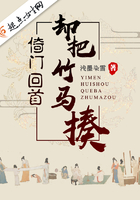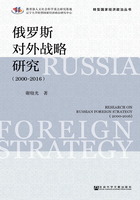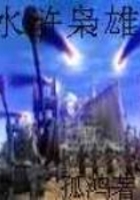Like Nyakang himself, their founder, each of the Shilluk kings after death is worshipped at a shrine, which is erected over his grave, and the grave of a king is always in the village where he was born. The tomb-shrine of a king resembles the shrine of Nyakang, consisting of a few huts enclosed by a fence; one of the huts is built over the king's grave, the others are occupied by the guardians of the shrine. Indeed the shrines of Nyakang and the shrines of the kings are scarcely to be distinguished from each other, and the religious rituals observed at all of them are identical in form and vary only in matters of detail, the variations being due apparently to the far greater sanctity attributed to the shrines of Nyakang. The grave-shrines of the kings are tended by certain old men or women, who correspond to the guardians of the shrines of Nyakang. They are usually widows or old men-servants of the deceased king, and when they die they are succeeded in their office by their descendants. Moreover, cattle are dedicated to the grave-shrines of the kings and sacrifices are offered at them just as at the shrines of Nyakang.
In general the principal element in the religion of the Shilluk would seem to be the worship which they pay to their sacred or divine kings, whether dead or alive. These are believed to be animated by a single divine spirit, which has been transmitted from the semi-mythical, but probably in substance historical, founder of the dynasty through all his successors to the present day. Hence, regarding their kings as incarnate divinities on whom the welfare of men, of cattle, and of the corn implicitly depends, the Shilluk naturally pay them the greatest respect and take every care of them; and however strange it may seem to us, their custom of putting the divine king to death as soon as he shows signs of ill-health or failing strength springs directly from their profound veneration for him and from their anxiety to preserve him, or rather the divine spirit by which he is animated, in the most perfect state of efficiency: nay, we may go further and say that their practice of regicide is the best proof they can give of the high regard in which they hold their kings. For they believe, as we have seen, that the king's life or spirit is so sympathetically bound up with the prosperity of the whole country, that if he fell ill or grew senile the cattle would sicken and cease to multiply, the crops would rot in the fields, and men would perish of widespread disease.
Hence, in their opinion, the only way of averting these calamities is to put the king to death while he is still hale and hearty, in order that the divine spirit which he has inherited from his predecessors may be transmitted in turn by him to his successor while it is still in full vigour and has not yet been impaired by the weakness of disease and old age. In this connexion the particular symptom which is commonly said to seal the king's death-warrant is highly significant; when he can no longer satisfy the passions of his numerous wives, in other words, when he has ceased, whether partially or wholly, to be able to reproduce his kind, it is time for him to die and to make room for a more vigorous successor. Taken along with the other reasons which are alleged for putting the king to death, this one suggests that the fertility of men, of cattle, and of the crops is believed to depend sympathetically on the generative power of the king, so that the complete failure of that power in him would involve a corresponding failure in men, animals, and plants, and would thereby entail at no distant date the entire extinction of all life, whether human, animal, or vegetable. No wonder, that with such a danger before their eyes the Shilluk should be most careful not to let the king die what we should call a natural death of sickness or old age. It is characteristic of their attitude towards the death of the kings that they refrain from speaking of it as death: they do not say that a king has died but simply that he has gone away like his divine ancestors Nyakang and Dag, the two first kings of the dynasty, both of whom are reported not to have died but to have disappeared. The similar legends of the mysterious disappearance of early kings in other lands, for example at Rome and in Uganda, may well point to a similar custom of putting them to death for the purpose of preserving their life.
On the whole the theory and practice of the divine kings of the Shilluk correspond very nearly to the theory and practice of the priests of Nemi, the Kings of the Wood, if my view of the latter is correct. In both we see a series of divine kings on whose life the fertility of men, of cattle, and of vegetation is believed to depend, and who are put to death, whether in single combat or otherwise, in order that their divine spirit may be transmitted to their successors in full vigour, uncontaminated by the weakness and decay of sickness or old age, because any such degeneration on the part of the king would, in the opinion of his worshippers, entail a corresponding degeneration on manking, on cattle, and on the crops. Some points in this explanation of the custom of putting divine kings to death, particularly the method of transmitting their divine souls to their successors, will be dealt with more fully in the sequel. Meantime we pass to other examples of the general practice.
The Dinka are a congeries of independent tribes in the valley of the White Nile. They are essentially a pastoral people, passionately devoted to the care of their numerous herds of oxen, though they also keep sheep and goats, and the women cultivate small quantities of millet and sesame. For their crops and above all for their pastures they depend on the regularity of the rains: in seasons of prolonged drought they are said to be reduced to great extremities.















